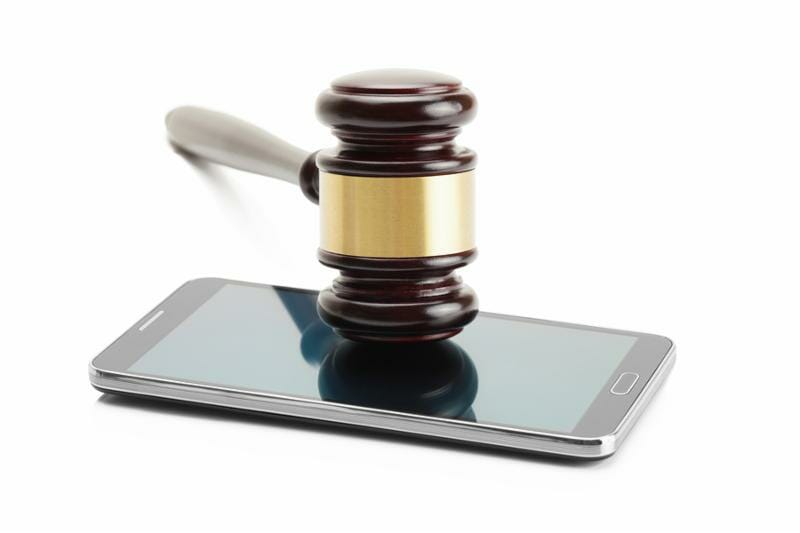The laws and regulations governing employer monitoring of employees via computers and smartphones clearly establish an employer’s right to track the actions of employees during work hours and on company owned equipment. The employer has broad leeway to install monitoring applications, including GPS tracking software and keylogging applications, on the laptops, tablets, and smartphones the company issues to employees, and to use those devices to evaluate how an employee spends their workday. Even with expansive rights in employee monitoring, employers still make mistakes, often egregious ones, when relying on smartphones to track employee productivity.
The Not-So-Private Place of Work
For more than twenty years, with cases such as Benn v. Florida East Coast Ry. Co. (No. 974403-CIV, 1999 WL 816811, S.D. FL 1999), and Kemp v. Block (607 F. Supp. 1262, 1264 D. Nev. 1985), courts have upheld the notions that (1) the workplace is closer to a public space than a private space, and, (2) employees have little to no expectation of privacy in the general workplace setting. The exceptions, which of course there are, include (1) places where employees would naturally expect privacy (a restroom, for example); and (2) other situations where employees would have a reasonable expectation of privacy (an employee sitting in their car having a conversation on their personal smartphone). Otherwise, provided the employer is following the law, including provisions of the Electronic Communications Privacy Act of 1986, and the Stored Communications Act, employers with legitimate business reasons may conduct monitoring of employees via smartphones.
Too Much of a Good Thing
Myrna Arias was an employee of a money transfer service, Intermex, when she was asked to install a GPS tracking app on her personal smartphone. Arias researched the app’s capabilities and functions. She then returned to her manager and asked if her off-hours activity would be tracked. Arias expressed her discomfort when she was informed that data down to the route she drove and the speed at which she drove would be tracked twenty-four hours a day, seven days a week. Arias decided to uninstall the app from her smartphone and was fired a short time later. Arias filed suit against Intermex seeking damages in excess of $500,000 (Arias vs. INTERMEX WIRE TRANSER, L.L.C., Case No. 1:15-cv-01101 JLT, United States District Court, E.D. California, 2015). The case eventually settled out of court, but nevertheless demonstrates that employees are ready to defend their privacy against an employer who takes monitoring an employee’s off hour behavior to an extreme.
In Crabtree v. Angie’s List, Inc. (No. 1:16-cv-00877-SEB-MJD, 2017, S.D. Indiana, 2017), employees sued for unpaid overtime under the Fair Labor Standards Act claiming they weren’t paid for time they spent beyond “normal” work hours to close sales on their personal computers and smartphones. Defendant’s lawyers moved to be allowed to extract the GPS and service data from the employees’ phones to reconstruct their movements. The request was denied because the court felt the data that would be provided included information on the employees’ movements and locations for a yearlong timeframe went well outside of working hours. In this case, the request was deemed to reveal too much of the employees’ personal lives.
Can’t Touch This
A case worth watching is Levin v. ImpactOffice, L.L.C., (No. TDC-16-2790, D. Maryland 2017), wherein one plaintiff claims that after the termination of her employment, the defendant, her former employer, demanded the return of a smartphone which she purchased from the employer through payroll deductions. Once the phone was returned to the employer, the employer then proceeded to access the former employee’s personal Gmail account in excess of forty times through inadequately erased data. The defendant moved to dismiss this particular cause of action because, as they argued, the plaintiff’s complaint does not have standing under the Stored Communications Act (“SCA”), which protects individuals from unauthorized access to electronically stored communications. The court found that plaintiff’s argument claiming the emails were stored on the phone for “backup purposes” satisfied the criteria for protection under the SCA. As a result, ImpactOffice’s motion to dismiss was denied.
Irrespective of who owns an employer monitored smartphone, employers are well within their rights to monitor employee performance in the many legal ways that best suit their business interests. By exercising a little caution when deciding what data to analyze, employers can demonstrate their respect for their employees’ privacy, while still obtaining valuable performance metrics. And that discretion shown by an employer that allows employees’ some private downtime? That may be just what pays off big in terms of employee loyalty.
Please direct questions and inquiries about cybersecurity, computer forensics and electronic discovery to info@digitalmountain.com.
